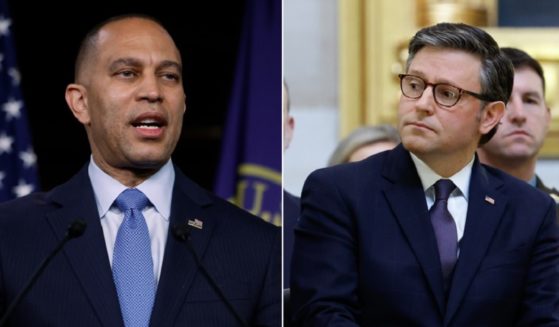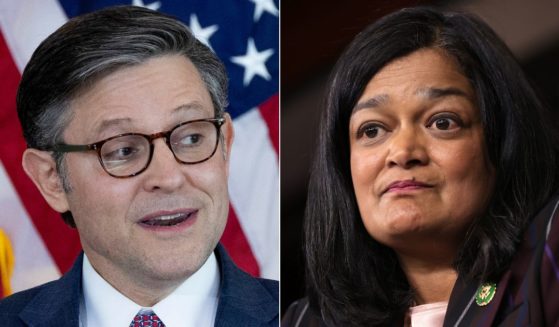Op-Ed: Social Media Companies Have Become Social Engineering Companies
Once upon a time, social media made us happy.
Unlike anything we had ever seen, mankind’s first experiences with social media two decades ago seemingly promised a radical new means of keeping up with friends and loved ones and making new acquaintances — a worldwide engine for genuine relationship-building.
Today, such memories are a blur, obscured by social media’s unfortunate new role as a weapon used to manipulate, censor and propagandize entire populations.
Society itself has become social media’s latest victim, as executives of these companies have spent years testifying in government chambers, penning hyperbolic value statements and, of course, taking to their own platforms to justify their descent into technological tyranny.
In a similar vein, the phrase “social engineering” has found increased usage in the information security sector to describe some of the tactics hackers use to trick victims into jeopardizing themselves. IBM describes it as follows:
“Social engineering manipulates people into sharing information they shouldn’t share, downloading software they shouldn’t download, visiting websites they shouldn’t visit, sending money to criminals, or making other mistakes that compromise their personal or organizational assets or security.”
As a political idea, however, the term’s origins go back to the late 19th century, to the dawn of the technological revolution.
After American industry captains sought to use the notion of “social engineering” to increase workplace efficiency (sometimes known as the “efficiency craze”), the Soviet Union adopted the concept for itself, launching deadly social engineering campaigns designed to forcibly rewrite the social attitudes, cultural norms and individual behaviors of the Soviet people; similar efforts were infamously undertaken in China during Mao Zedong’s “Great Leap Forward” and in Cambodia under the Khmer Rouge.
The grisly history of social engineering should make us all the more wary of the eagerness with which social media companies have — like their industrialist predecessors over a century ago — embraced this practice.
Meta, the parent company of both Facebook and Instagram, has led the way in this shift. Once celebrated as a promising, dynamic start-up, Facebook has come to epitomize online tyranny for the untold millions who have found themselves censored in some way on the site.
In May 2021, Facebook co-founder and CEO Mark Zuckerberg published a 5,700-word manifesto vowing that the company would work to “build the new social infrastructure to create the world we want for generations to come” — an agenda he defined as “spreading prosperity and freedom, promoting peace and understanding, lifting people out of poverty, [accelerating] science … ending terrorism, fighting climate change, and preventing pandemics.”
This statement came just two months after Facebook announced its so-called “Together Against COVID-19 Misinformation” campaign — a project launched alongside the World Health Organization.
It also came less than one year after Facebook vice president of global affairs and communications Nick Clegg (former deputy prime minister of the United Kingdom) announced the creation of the company’s Climate Science Information Center, which it has used to label posts with what it calls “factual information from leading climate organizations and resources.”
Alongside Meta in the implementation of social engineering has been YouTube. Fortunately, the company’s longtime CEO, Susan Wojcicki, resigned last month — but not before setting YouTube on a path of no return against freedom of speech.
Throughout her term as CEO, Wojcicki remained cavalier about her megalomaniacal aims for the video platform. At a New York Times summit in March 2017, she responded to a question about “the greater good of the nation or humanity” by emphasizing what she called YouTube’s “social responsibility” to the world.
Then, in an Op-Ed published in The Wall Street Journal four years later, Wojcicki discussed YouTube’s relationship with an organization called the Global Alliance for Responsible Media, a flagship project of the World Economic Forum.
Wojcicki also cites YouTube’s status (along with Facebook, Twitter and Microsoft) as a founding member of the Global Internet Forum to Counter Terrorism, an organization that “works to facilitate broad dialogue and analysis of how terrorism and violent extremism manifests across the ideological spectrum.”
(One does not need to have a large imagination to understand how such a body’s definitions of “terrorism” and “violent extremism” could be used against the political enemies of globalism in our lifetime.)
There are many alternatives to the problem of social engineering, but the best of them all is to build and support parallel social media platforms, free of centralized authority and authoritarian schemes. Until then, I will continue to believe that social media can become a place where people can be happy again.
The views expressed in this opinion article are those of their author and are not necessarily either shared or endorsed by the owners of this website. If you are interested in contributing an Op-Ed to The Western Journal, you can learn about our submission guidelines and process here.
Truth and Accuracy
We are committed to truth and accuracy in all of our journalism. Read our editorial standards.












